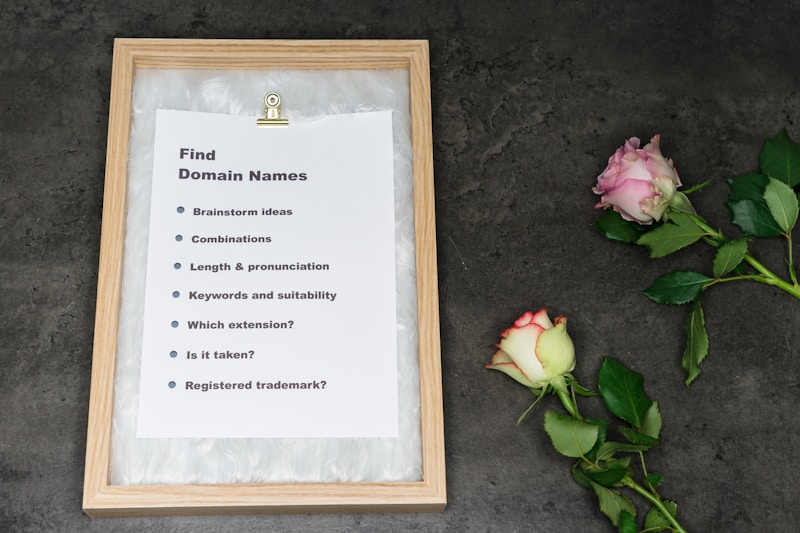Avoiding Last-Minute Wedding Planning Headaches: A Comprehensive Guide
Avoiding Last-Minute Wedding Planning Headaches: A Comprehensive Guide
Planning a wedding is often described as one of the most stressful events in a person’s life. With so many details to consider and decisions to make, it’s easy to feel overwhelmed, especially if you wait until the last minute. In this article, we'll explore effective strategies for avoiding last-minute wedding planning headaches and ensuring your big day goes off without a hitch.
Understanding the Importance of Early Wedding Planning
When it comes to weddings, preparation is key. Early planning allows you to secure preferred venues, vendors, and options that accommodate your vision. Furthermore, it gives you ample time to make adjustments, build strong communication with vendors, and lower overall stress levels. Consider the following table that outlines the timeline for essential wedding planning tasks:
| Wedding Planning Task | Recommended Timeline |
| Set a budget | 12+ months before |
| Select a venue | 10-12 months before |
| Find a photographer | 9-10 months before |
| Send save-the-dates | 6-8 months before |
| Choose a catering service | 6-8 months before |
| Finalize the guest list | 4-6 months before |
| Send invitations | 2-3 months before |
| Confirm all details with vendors | 1 month before |
Steps to Avoid Last-Minute Stress
Now, let’s delve deeper into strategies for avoiding the typical snafus associated with last-minute wedding planning. Here are the essential steps you can take:
1. Create a Detailed Wedding Checklist
One of the best ways to stay organized is by creating a detailed checklist of everything that needs to be completed before the big day. This should include everything from booking a venue to confirming transportation arrangements. A comprehensive checklist ensures that you don't overlook any crucial details.
2. Prioritize Tasks
Identify which tasks are the most important and time-sensitive. Tasks such as booking the venue and securing key vendors (caterers, florists, photographers) should take precedence. Once these critical elements are secured, you can focus on the finer details, such as seating arrangements and decorations.
3. Delegate Responsibilities
Don't hesitate to enlist the help of friends, family members, or even a wedding planner. Delegating responsibilities can relieve stress and allow you to focus on other critical aspects of planning. Make sure everyone involved knows their specific roles and deadlines.

4. Stay Within Your Budget
Financial stress can compound the challenges of wedding planning. Set a realistic budget based on your priorities, and stick to it. Monitor your expenses regularly and make adjustments as necessary. If a last-minute expense arises, it can lead to chaos if your budget isn't flexible.
5. Opt for Online Tools and Resources
Utilizing wedding planning websites, apps, and tools can streamline the process significantly. Tools like wedding checklists, budget planners, and vendor directories can help you keep everything organized in one place. This reduces the likelihood of scrambling at the last minute to find incomplete tasks.
6. Schedule Regular Check-Ins
Set a timeline for regular check-ins with key vendors. Regular updates ensure that everyone is on the same page, reducing the chances of misunderstandings or last-minute surprises. Make it a point to have face-to-face meetings or phone calls, particularly as the wedding date approaches, to address any last-minute concerns.
7. Be Prepared for the Unexpected
Even with the best planning, unexpected issues can arise. Preparing contingency plans, such as having a backup venue in mind or understanding how to handle inclement weather, can help ease last-minute frustrations. Take a deep breath, and remember that flexibility can often make or break your wedding experience.
Common Last-Minute Wedding Planning FAQs
1. What should I do if my vendor cancels last minute?
If a vendor cancels, remain calm and don’t panic. Immediately contact your backup vendors or reach out to recommendations from friends or family. This is why having a list of potential vendors handy is essential.
2. How can I make sure guests RSVP on time?
To ensure timely RSVPs, consider sending digital invitations or follow-up calls after sending out the invites. A friendly reminder can prompt guests to respond quicker while also solidifying their attendance.
3. Should I hire a wedding planner?
If your budget allows, hiring a wedding planner can significantly reduce your stress. They often have industry connections and experience handling last-minute issues, providing peace of mind as your date approaches.
4. What are essential items for a wedding emergency kit?
A wedding emergency kit should include items like a sewing kit, stain remover, pain relievers, snacks, and extra makeup. These essentials can be lifesavers during time-sensitive moments.
5. How can I ensure the ceremony runs smoothly?
To ensure the ceremony runs without a hitch, carry out a rehearsal before the big day. This allows all parties involved to understand their roles and timing, reducing the chances of chaos during the actual event.
Conclusion: Start Early and Stay Organized
Avoiding last-minute wedding planning headaches is all about detailed organization, early planning, and effective communication. By following the strategies outlined in this article, you can make your wedding planning process smoother and enjoy your special day. Remember to prioritize tasks, delegate responsibilities, and remain flexible as you approach the date. Here’s wishing you a beautiful wedding filled with joy, love, and lasting memories!
